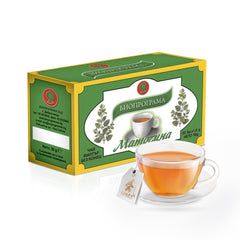
Lemon Balm Plant Uses & Benefits
Share
Lemon Balm Plant Uses & Benefits

Lemon balm (Melissa officinalis) is a perennial, herbaceous plant with a lemon scent. It belongs to the Lamiaceae family. The plant is also known as balsamic mint, lemongrass, honeysuckle, and sedum. The herb is honeydew.

The plant Lemon balm
The stem of the plant is four-edged and branched. It is covered with glandular hairs. It reaches a height of 30-80 to 70-150 cm. It has a well-developed rhizome. Its leaves are egg-shaped, jagged, located opposite the branches. Their upper surface is colored dark green and is smooth, while the lower surface has hairs and is light green. The flowers are collected in false, vertebra inflorescences, from 3 to 10 in number, located in the axils of the higher leaves of the branch. They can be colored pale yellow, white or pink. The fruit is composed of four, one-seeded, egg-shaped nutlets, colored light brown.

Where does Lemon balm grow?
The birthplace of lemon balm is southern and central Europe and the Mediterranean. It grows in bushes, on grassy and stony places, near fences, in gardens and yards.
Usable parts of lemon balm
For medicinal purposes, lemon balm leaves are used, which are harvested before flowering. The plant can be mowed and then its leaves peeled off. But they should not be crushed, because they turn black when drying. The drying process is carried out in the shade or in a dryer at a temperature of 40 degrees. Dry leaves have a slightly bitter taste. When crushed, they emit a lemony smell.

Chemical composition of lemon balm
The leaves of the herb contain
- essential oil;
- tanning substances;
- enzymes;
- bitter substances;
- aldehydes;
- caffeic acid;
- oleic acid;
- ursolic acid;
- mucous substances;
- vitamin C;
- linalyl acetate;
- caryophyllous;
- triterpenic acids and others.
- The essential oil consists of citronellal, myrcene, linalool, geraniol, citral, etc.

Medicinal properties and application of lemon balm
The herb has an antispastic, pain-relieving and digestive system stimulating effect. It removes the feeling of excitement and tension, lowers blood pressure, suppresses sexual arousal, improves vision.
- Conditions and diseases for which the herb is used
- migraine;
- neurosis;
- chest frog;
- neurasthenia;
- inflammation of the stomach and bowels, due to nervous indisposition;
- vomiting;
- dizziness;
- headache;
- apoplexy;
- shortness of breath;
- melancholy;
- toothaches and earaches due to nerves;
- insomnia;
- epilepsy;
- menstrual problems;
- sexual arousal;
- palpitations;
- high blood pressure;
- vision problems.

Externally, in the form of paws, it is used for rheumatoid swellings, lumps in the breasts of nursing women, pain in the stomach and intestines. You can gargle with lemon balm tea for sore tonsils. The herb is also used in the perfumery industry.


